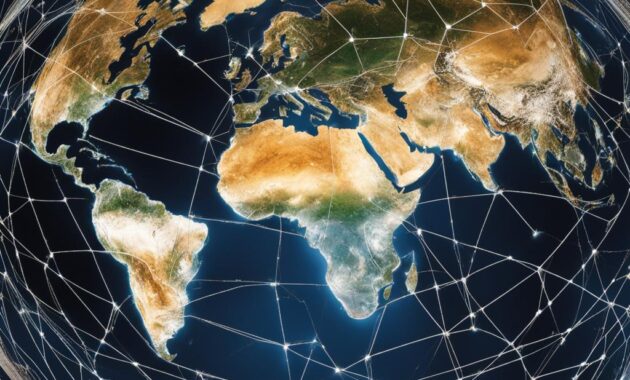Welcome to our upcoming article on the influential role of multinational corporations in shaping the global economy. As we delve into the complexities of their business operations, we will uncover the numerous benefits they bring to both developed and developing countries.
Multinational corporations are companies that operate in different countries, with headquarters in one country and operations in others. They are considered as key players in the global economy, as they are responsible for a significant proportion of world trade and foreign direct investment.
They have a significant impact on the countries where they operate, creating jobs, transferring technology, and contributing to economic growth. However, their operations are not without challenges and controversies, and it is essential to understand their impact on the global economy fully.
Join us in the following sections as we explore the complex world of multinational corporations, their operations, and the impact they have on the global economy.
Understanding Multinational Corporations
When we talk about multinational corporations, we refer to large companies that operate in multiple countries across the world. These corporations have a significant impact on the global economy, and their activities raise many complex issues that we need to understand to appreciate their effects fully.
Multinational corporations come in many shapes and sizes, with some having thousands of employees and some having only a few dozen. They operate across a variety of industries, including technology, manufacturing, and the service sector. In many cases, they have outgrown their original country of origin and become truly global entities, with international operations accounting for a significant portion of their revenue.
To succeed in foreign markets, multinational corporations employ various strategies, such as establishing joint ventures with local partners or acquiring local companies. They also leverage their size and resources to gain a competitive advantage, by investing in research and development, developing innovative products, or streamlining their supply chains.
However, expansion into new markets also presents many challenges, such as navigating different legal and regulatory frameworks, adapting to cultural differences, and managing risk in unfamiliar environments. To overcome these difficulties, multinational corporations need to become adept at managing global operations, ensuring that they remain profitable and sustainable in the long run.
In summary, multinational corporations are complex entities that have a significant impact on the global economy. Understanding how they operate and compete in foreign markets is essential for appreciating their role in shaping the business world.

Impact of Multinational Corporations
When it comes to the global economy, multinational corporations wield significant power. These companies, which operate in multiple countries, bring with them a range of business complexities, benefits, and controversies. In this section, we will take a closer look at the impact of multinational corporations on the world economy.
Job Creation
One of the most significant impacts of multinational corporations is job creation. These companies often employ large numbers of workers, both skilled and unskilled, in countries where they operate. For developing countries, multinational corporations can offer vital employment opportunities and help to boost economic growth. However, critics argue that these jobs can be low-paying and offer poor conditions.
Economic Growth
Another key benefit of multinational corporations is their contribution to economic growth. These companies can bring new technologies, products, and services to countries, driving innovation and spurring economic development. Multinational corporations can also help to establish local industries, creating a ripple effect of job creation and economic growth.
Technology Transfer
Alongside economic growth, multinational corporations also facilitate technology transfer between countries. By bringing new technology and expertise to developing nations, these companies can help to bridge the gap between developed and developing countries. This can lead to greater innovation, productivity, and competitiveness.
Challenges and Controversies
Despite the benefits, multinational corporations also face a range of challenges and controversies. These companies have been criticized for their impact on the environment, their role in exacerbating inequality, and their perceived lack of accountability. Additionally, concerns have been raised about their impact on local industries, monopolistic practices, and labor practices in developing countries.
Conclusion
Overall, multinational corporations have a significant impact on the global economy. Our analysis has shown the many benefits brought about by their business operations, such as job creation, economic growth, and technology transfer. However, we must also consider the challenges and controversies associated with their operations, including concerns about unethical practices and negative impacts on local industries.
Despite these challenges, it is clear that multinational corporations are here to stay. As such, it is essential that we strive for responsible and sustainable practices that balance the interests of stakeholders. By doing so, we can continue to appreciate the immense contributions these corporations make to economic development while addressing any negative impacts they may have.
Overall, understanding the impact of multinational corporations on the global economy is crucial for navigating the complexities of the modern business world. We must continue to study their operations, examine their impact, and hold them accountable for their actions. Only then can we ensure a prosperous and sustainable future for all.




